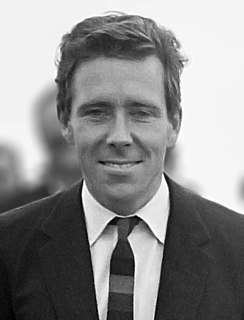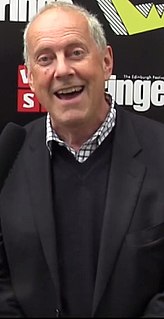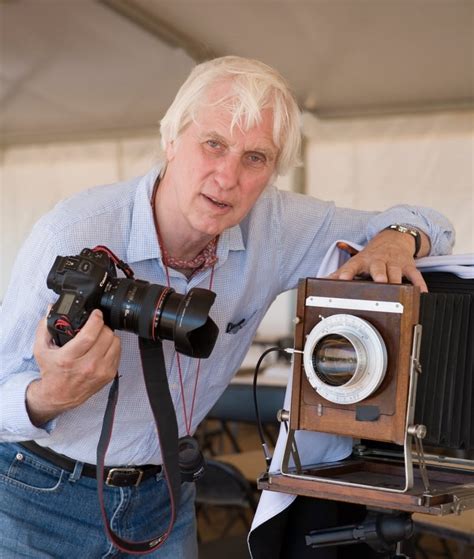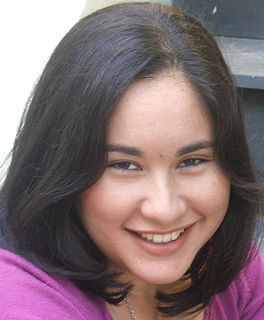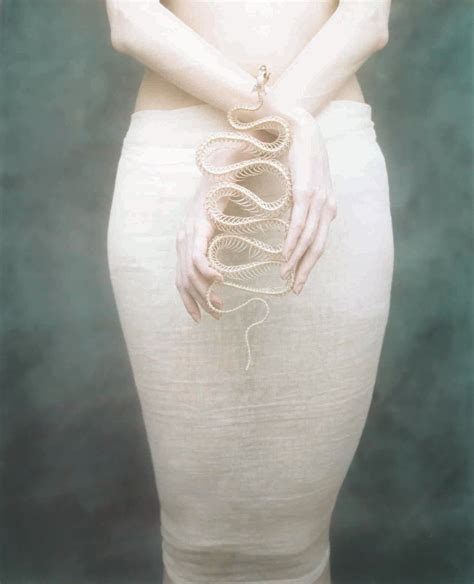A Quote by Antony Armstrong-Jones, 1st Earl of Snowdon
I think it is quite wrong to photograph, for example, Garbo, if she doesn't want to be photographed. Now I would have loved to photograph her, but she obviously didn't want to be photographed so I didn't follow it up. Then somebody will photograph her walking down the street because she has to walk down the street, and I mind that sort of intrusion. I think this is horrible.
Related Quotes
I would love to photograph Angelina Jolie. A friend of mine is working with her on her next film and told me what I was already suspecting, that she is extremely interesting. I have never seen a picture of her that conveys all of her complexity. That would be a fabulous challenge, to find that in a photograph.
What do you think it would have been like if Valentine had brought you up along with me? Would you have loved me?" Clary was very glad she had put her cup down, because if she hadn't, she would have dropped it. Sebastian was looking at her not with any shyness or the sort of natural awkwardness that might be attendant on such a bizarre question, but as if she were a curious, foreign life-form. "Well," she said. "You're my brother. I would have loved you. I would have...had to.
Suddenly she felt strong and happy. She was not afraid of the darkness or the fog and she knew with a singing in her heart that she would never fear them again. No matter what mists might curl around her in the future, she knew her refuge. She started briskly up the street toward home and the blocks seemed very long. Far, far too long. She caught up her skirts to her knees and began to run lightly. But this time she was not running from fear. She was running because Rhett's arms were at the end of the street.
He lifted his gaze to the framed photograph of Tanya and him taken on their wedding day. God, she had been lovely. Her smile had come through her eyes straight from her heart. He had known unequivocally that she loved him. He believed to this day that she had died knowing that he loved her. How could she not know? He had dedicated his life to never letting her doubt it.
If you photograph for a long time, you get to understand such things as body language. I often do not look at people I photograph, especially afterwards. Also when I want a photo, I become somewhat fearless, and this helps a lot. There will always be someone who objects to being photographed, and when this happens you move on.
Over the years I have photographed thousands of people. I have never stopped being curious and trying to discover new worlds. I have used my camera as a mirror for my subjects as well. I remember photographing a woman in her 80s for my book, Wise Women, who told me it had been a long time since anyone had really been interested in "seeing" or photographing her. When she saw the picture, she burst into tears. She saw something in the photograph, an inner beauty and soul, she felt had long ago vanished.
In Tereza’s eyes, books were the emblems of a secret brotherhood. For she had but a single weapon against the world of crudity surrounding her: the novels. She had read any number of them, from Fielding to Thomas Mann. They not only offered the possibility of an imaginary escape from a life she found unsatisfying; they also had a meaning for her as physical objects: she loved to walk down the street with a book under her arm. It had the same significance for her as an elegant cane from the dandy a century ago. It differentiated her from others.
There was no such person as Marilyn Monroe. Marilyn Monroe was an invention of hers. A genius invention that she created, like an author creates a character. She understood photography, and she also understood what makes a great photograph. She related to it as if she were giving a performance. She gave more to the still camera than any actress-any woman- I've ever photographed.
